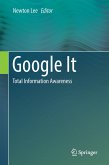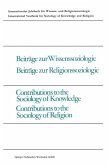Man is distinguished from the rest of the animal world by the formation and use of symbols, which many researchers consider as the central cognitive process in mankind s thinking. A study of human communication, then, would be incomplete without a consideration of the impact of symbolism. The use of symbols in communication has been a focus of study in many disciplines including psychology, religion, literature, and more. In contemporary research fields, such as computer-mediated communication, the study of culture and symbols is a relatively new focus of effort. While it is well known that the meanings of symbols is both taught and learned through cultural phenomena, this research effort is among the first that looks into the cultural influence of symbol meaning on user trust. This study outlines an experiment and subsequent analysis that revealed sufficient evidence to suggest that the use of symbols associated with positive character traits resulted in increased trust development and with an increased willingness to behave in a trusting way. These results suggest implications in many areas outside the realm of traditional technology studies.
Bitte wählen Sie Ihr Anliegen aus.
Rechnungen
Retourenschein anfordern
Bestellstatus
Storno








